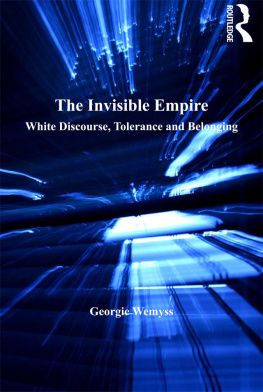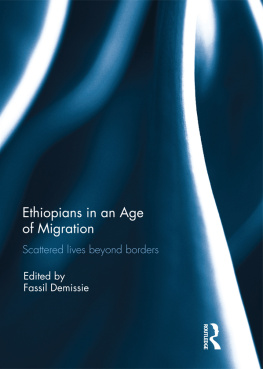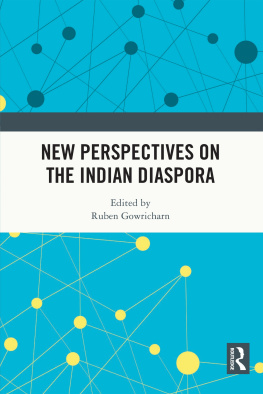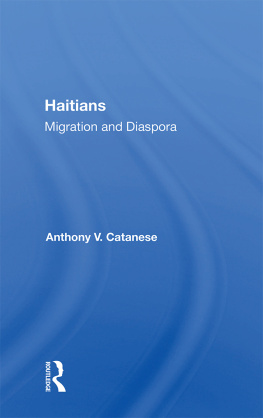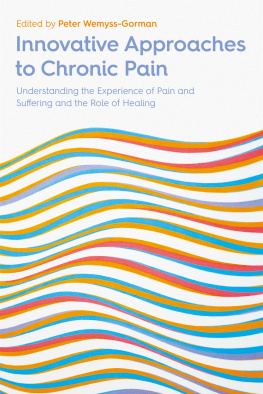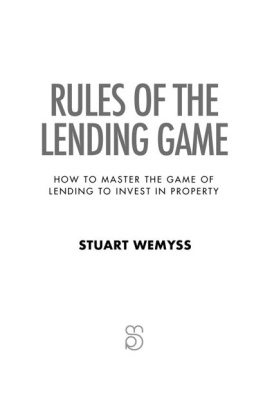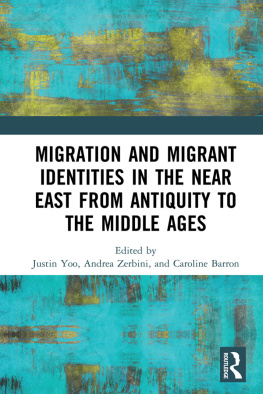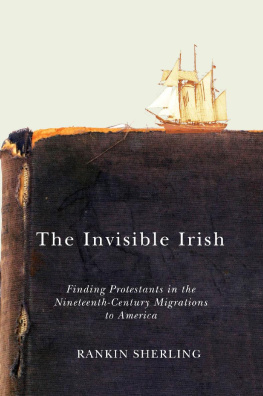Georgie Wemyss - The Invisible Empire (Studies in Migration and Diaspora)
Here you can read online Georgie Wemyss - The Invisible Empire (Studies in Migration and Diaspora) full text of the book (entire story) in english for free. Download pdf and epub, get meaning, cover and reviews about this ebook. year: 2016, publisher: Taylor and Francis, genre: Politics. Description of the work, (preface) as well as reviews are available. Best literature library LitArk.com created for fans of good reading and offers a wide selection of genres:
Romance novel
Science fiction
Adventure
Detective
Science
History
Home and family
Prose
Art
Politics
Computer
Non-fiction
Religion
Business
Children
Humor
Choose a favorite category and find really read worthwhile books. Enjoy immersion in the world of imagination, feel the emotions of the characters or learn something new for yourself, make an fascinating discovery.
- Book:The Invisible Empire (Studies in Migration and Diaspora)
- Author:
- Publisher:Taylor and Francis
- Genre:
- Year:2016
- Rating:3 / 5
- Favourites:Add to favourites
- Your mark:
- 60
- 1
- 2
- 3
- 4
- 5
The Invisible Empire (Studies in Migration and Diaspora): summary, description and annotation
We offer to read an annotation, description, summary or preface (depends on what the author of the book "The Invisible Empire (Studies in Migration and Diaspora)" wrote himself). If you haven't found the necessary information about the book — write in the comments, we will try to find it.
The Invisible Empire (Studies in Migration and Diaspora) — read online for free the complete book (whole text) full work
Below is the text of the book, divided by pages. System saving the place of the last page read, allows you to conveniently read the book "The Invisible Empire (Studies in Migration and Diaspora)" online for free, without having to search again every time where you left off. Put a bookmark, and you can go to the page where you finished reading at any time.
Font size:
Interval:
Bookmark:
THE INVISIBLE EMPIRE
Studies in Migration and Diaspora
Series Editor:
Anne J. Kershen, Queen Mary College, University of London, UK
Studies in Migration and Diaspora is a series designed to showcase the interdisciplinary and multidisciplinary nature of research in this important field. Volumes in the series cover local, national and global issues and engage with both historical and contemporary events. The books will appeal to scholars, students and all those engaged in the study of migration and diaspora. Amongst the topics covered are minority ethnic relations, transnational movements and the cultural, social and political implications of moving from over there, to over here.
Also in the series:
Lifestyle Migration
Expectations, Aspirations and Experiences
Edited by Michaela Benson and Karen OReilly
ISBN 978-0-7546-7567-9
International Migration and Rural Areas
Cross-National Comparative Perspectives
Edited by Birgit Jentsch and Myriam Simard
ISBN 978-0-7546-7484-9
Accession and Migration
Changing Policy, Society, and Culture in an Enlarged Europe
Edited by John Eade and Yordanka Valkanova
ISBN 978-0-7546-7503-7
Migrant Women Transforming Citizenship
Life-stories From Britain and Germany
Umut Erel
ISBN 978-0-7546-7494-8
Polish Migration to the UK in the New European Union
After 2004
Edited by Kathy Burrell
ISBN 978-0-7546 7387-3
White Discourse, Tolerance and Belonging
GEORGIE WEMYSS
Goldsmiths, University of London, UK

First published 2009 by Ashgate Publishing
Published 2016 by Routledge
2 Park Square, Milton Park, Abingdon, Oxon OX14 4RN
711 Third Avenue, New York, NY 10017, USA
Routledge is an imprint of the Taylor & Francis Group, an informa business
Copyright 2009 Georgie Wemyss.
Georgie Wemyss has asserted her right under the Copyright, Designs and Patents Act, 1988, to be identified as the author of this work.
All rights reserved. No part of this book may be reprinted or reproduced or utilised in any form or by any electronic, mechanical, or other means, now known or hereafter invented, including photocopying and recording, or in any information storage or retrieval system, without permission in writing from the publishers.
Notice:
Product or corporate names may be trademarks or registered trademarks, and are used only for identification and explanation without intent to infringe.
British Library Cataloguing in Publication Data
Wemyss, Georgie.
The invisible empire : white discourse, tolerance and
belonging. -- (Studies in migration and diaspora)
1. Race relations. 2. Ethnic attitudes. 3. Toleration-
History. 4. London (England)--Race relations--History.
5. Whites--Race identity.
I. Title II. Series
305.8009-dc22
Library of Congress Cataloging-in-Publication Data
Wemyss, Georgie.
The invisible empire : white discourse, tolerance and belonging / by Georgie Wemyss.
p. cm. -- (Studies in migration and diaspora)
Includes index.
ISBN 978-0-7546-7347-7 (hbk.) -- ISBN 978-0-7546-9154-9
(ebook) 1. Whites--Great Britain. 2. National characteristics--Great Britain. 3.
Hegemony--Social aspects--Great Britain. 4. Toleration--Great Britain. 5. Great Britain -
Race relations. I. Title.
DA125.A1W446 2009
305.809041--dc22
2009031367
ISBN 978-0-754-67347-7 (hbk)
ISBN 978-1-315-55656-7 (ebk)
PART I
Introduction to Chapters 1 and 2
PART II
Introduction to Chapters 3 and 4
PART III
Introduction to Chapters 5 and 6
Memory and language are essentials in the construction of self-identity, our understanding of where we find ourselves and the way in which others recognise us as either insiders or outsiders. In this thought provoking book Georgie Wemyss examines the way in which specific aspects of the first have been air brushed out of the history of the British Empire and the way in which discourses of Empire use words to identify and locate its subjects within the hierarchy of belonging. The spine of this volume is the Invisible Empire; a space inhabited by those aspects of colonial development and exploitation which are less celebratory than the mercantile success stories which span the mid-sixteenth through to the early twentieth centuries.
However, this is not an abstract work which dwells in a realm of unidentified heroes and heroines and distance places. For the most part the action takes place in East London, in districts which have accommodated people from the British Empire for centuries. Spitalfields, a traditional place of first settlement since the medieval period provided lodgings for lascar sailors in the eighteenth and nineteenth centuries. More recently, it has been home to immigrants from what was Bengal during the days of the Raj and, since 1971, the independent state of Bangladesh. Yet, as the author highlights, though some have been resident for almost fifty years, these settlers have been, and by many still are, perceived as passive outsiders, whose ancestors role in the creation of the wealth and splendour of the British Empire has received little or no recognition.
The discourse of Invisible Empire is at its most obtuse when it moves to Docklands, a creation of the early 1990s a district so named, not in commemoration of the Indian seamen who worked on the merchant ships that brought wealth to Britain, nor in memory of those who made the involuntary voyage from Africa as slaves in chains to work on the plantations of the West Indies and North America. Docklands was not created as an apology for enslavement and capture, rather it was fashioned as a financial celebration of past commercial triumphs and a base for future entrepreneurial success.
In spite of recent moves by some to recognise the real history of the British Empire and the part played in it by non-Europeans, the White Liberal discourse all too often fails to acknowledge the contribution of all members of the Empire. Their oft reiterated statements of tolerance only serve to act as a reinforcement of the reality of the outsiders continuing alienation and invisibility. As Wemyss explains, Bengalis in Britain are now categorised in the newly constructed and crudely all embracing categories of Muslim and/or multi-cultured. They, in common with other minority groups, are being denied their individual identities and losing the opportunity to sound their voices as their fellow British citizens do. By exposing the Invisible Empire as not only part of a racist dialogue but also as a constituent of the White Liberal discourse, Wemyss has begun a movement towards the rewriting of the history of the British Empire and the inclusion of all those who made it great.
Anne J. Kershen
Queen Mary University of London
Summer 2009
As Wemyss describes it lascar seamen were at the very bottom of the British Merchant Navy hierarchies; thus, even if unconsciously so, the term was taken as a pejorative.
This book is dedicated to my children, Ishan and Akashi, born in London in the 1990s and to their four grandparents born in Sylhet, Bombay and Colombo before 1947
Font size:
Interval:
Bookmark:
Similar books «The Invisible Empire (Studies in Migration and Diaspora)»
Look at similar books to The Invisible Empire (Studies in Migration and Diaspora). We have selected literature similar in name and meaning in the hope of providing readers with more options to find new, interesting, not yet read works.
Discussion, reviews of the book The Invisible Empire (Studies in Migration and Diaspora) and just readers' own opinions. Leave your comments, write what you think about the work, its meaning or the main characters. Specify what exactly you liked and what you didn't like, and why you think so.

